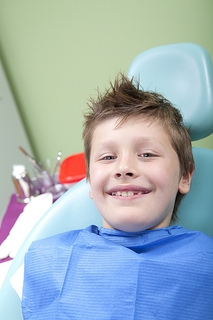Preventing Toddler Tooth Decay
December 29th, 2021

You do everything you can to protect your toddler with safeguards large and small. Installing that complicated car seat. Figuring out which sunscreen is best for delicate skin. Spending weeks childproofing your home. But all the work protecting your child is more than worth it because the rewards are so great. And one more everyday precaution that brings great rewards is protecting your toddler from tooth decay.
- Start Early
The time to start your baby’s dental care is even before that first tooth arrives. Carefully wiping the gums with a clean, damp cloth after feeding gets your child used to the idea of brushing and removes bacteria that might irritate the gums as the teeth begin to erupt. As soon as those teeth arrive, gentle brushing with soft bristles will keep bacteria and plaque from causing tooth decay and gingivitis. We can recommend toothpastes formulated especially for toddlers and suggest the best ways to brush.
- Mind The Menu
We know that sugary foods aren’t healthy for your toddler’s teeth. Bacteria in the mouth feeds on sugar, and a sugar-heavy diet results in more of the bacteria and plaque which cause cavities. But sugar is not the only food that is not tooth-friendly. For example, foods like citrus fruits and juices can also be a problem. Acidic foods can actually weaken enamel after eating and leave teeth more vulnerable to cavity-causing bacteria and plaque. We have suggestions for tooth-healthy snacks and the best times to brush after eating if you and your child indulge in a treat.
- Don’t Misuse Bottles & Sippy Cups
Your toddler might still use a bottle at night or a sippy cup throughout the day. Juices and even milk contain sugar that increases the risk of cavities, and if your child goes to sleep with a bottle or cup, these liquids pool in the mouth overnight allowing bacteria to flourish. If your toddler wants a drink at night or between meals, water is a much better option.
Those tiny teeth are important for so many reasons. They enable children to bite and chew efficiently, to pronounce sounds properly for speech development, and to save space for adult teeth so they erupt in the right place. Dr. Brad Skelton and Dr. Richard Kennedy and our team recommend that your child visit our Fairfield or Oxford office after the first tooth comes in, and always by the first birthday. We will make sure your toddler’s teeth are developing as they should be and suggest ways to keep them cavity-free. Your toddler’s healthy, beautiful smile is a reward worth protecting!














 Website Powered by Sesame 24-7™
Website Powered by Sesame 24-7™